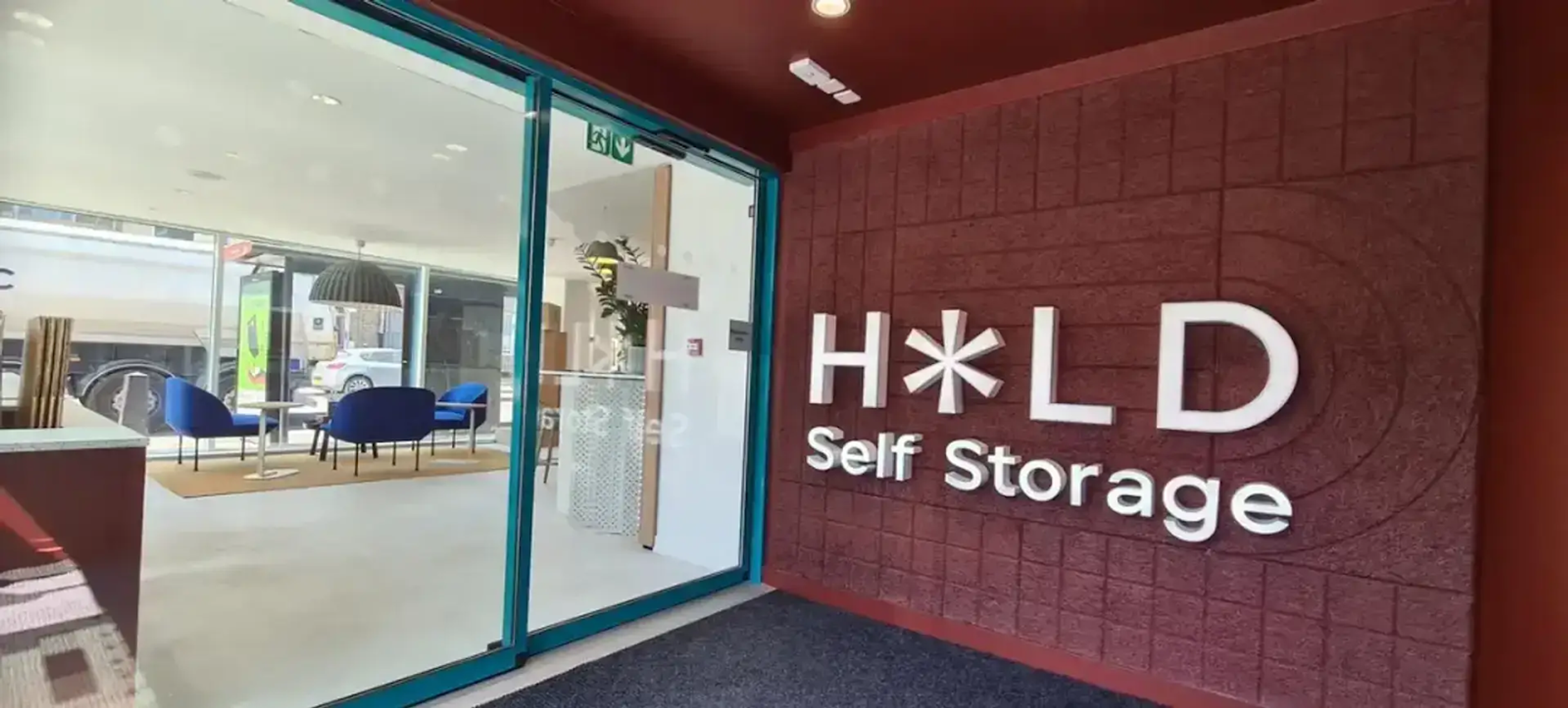A storage unit is deemed abandoned when tenants fail to pay rent or respond to notifications. To avoid this, tenants should pay on time, communicate with the facility, and understand their rental agreement.
When using self-storage, understanding the risks of non-payment and abandonment is crucial. If tenants fail to meet their obligations, storage companies may declare their units abandoned, leading to potential auctions of the unit's contents. The storage business operates under strict guidelines to ensure fair practices when a storage unit is considered abandoned.
This blog explores the timelines, circumstances, legalities, and steps involved when a storage unit is considered abandoned, offering practical advice to avoid such situations.
What does it mean when a storage unit is considered abandoned?
When a storage unit is considered abandoned, the facility has determined that the tenant has forfeited their rights to the unit's contents. This situation typically arises due to non-payment of rent or failure to respond to notifications.
Abandonment is not immediate. Laws and contracts governing self-storage units dictate a grace period before a unit is officially declared abandoned. This long period ensures tenants have ample opportunity to resolve their obligations.
Facility managers will inspect the unit's circumstances, ensuring due diligence is performed before taking further action. Stored property can include personal belongings, documents, or even items like pet supplies, making a clear process essential to avoid disputes.
Legalities and timelines for abandoned storage units
The legal process for determining when a storage unit is considered abandoned depends on regional regulations and the terms outlined in the tenant’s rental agreement. Storage facilities must follow structured steps to ensure compliance with the law and fairness to all parties involved.
These processes are designed to protect both the storage company and the tenant, creating a clear timeline for addressing unpaid rent and abandonment.
Grace periods
Most facilities provide a grace period ranging from 30 to 90 days following a missed payment. During this time, tenants are encouraged to pay overdue amounts, including any late fees, to avoid losing access to their unit.
This period serves as a safeguard, ensuring tenants have enough time to resolve financial issues before further action is taken.
Notification requirements

Facilities are required to notify tenants of unpaid rent and potential consequences, such as abandonment or an upcoming auction. These notifications may be sent through mail, email, or even phone calls, depending on the agreement.
Proper communication ensures tenants are fully aware of their obligations and potential outcomes.
Adherence to legal frameworks
Each country or region has its own legal standards for dealing with abandoned storage units. In the UK, for example, facilities are required to issue formal written notices to tenants, giving them an appropriate amount of time to pay their dues or retrieve their belongings.
Failure to follow these protocols can result in legal disputes or penalties for the facility.
Final abandonment designation

If the tenant fails to pay rent, respond to notices, or collect their belongings after the grace period, the storage facility may declare the unit abandoned.
At this point, the facility manager or property manager can take legal action to either dispose of or prepare the unit’s contents for auction.
Beyond these steps, facilities often conduct a detailed review of the unit’s history and the tenant’s account to ensure there are no errors.
For instance, if a payment was missed due to technical issues or if the tenant’s contact information has changed, facility staff will make reasonable attempts to resolve the issue before proceeding with abandonment procedures.
To protect the integrity of the storage industry, strict rules govern how stored property is handled. Facilities must take precautions, such as documenting the unit's contents, checking for sensitive or stolen goods, and ensuring items like perishable food are safely disposed of.
Furthermore, before the real estate auction begins, the facility must advertise the sale through appropriate channels, such as in a local newspaper or online, to ensure transparency.
By following these legalities and timelines, facilities maintain accountability and provide tenants with every opportunity to reclaim their belongings, while protecting themselves from liability.
Steps storage facilities take before declaring abandonment

When a tenant stops paying rent for a storage unit, facilities follow a structured process to ensure the situation is handled fairly and legally. Declaring a unit abandoned is not an immediate action—it is a step-by-step procedure designed to respect the tenant’s rights while allowing the facility to recoup losses. Here are the typical stages involved:
- Notice of late payment – After a tenant misses their due date, the facility issues a notification of the missed payment. This is usually sent via email, text, or letter, and serves as the first reminder for tenants to settle their rent. Some facilities might include additional information about accruing late fees or the potential consequences of non-payment.
- Red lock placement – If no payment is received after the initial notice, the facility may place a red lock on the unit. This lock serves as a visual indicator that access is restricted due to unpaid rent. While the tenant retains ownership of the unit’s contents at this stage, the red lock symbolises that action is required to restore access.
- Grace period enforcement – The facility allows a grace period, typically 30–90 days, during which tenants can settle their accounts. The exact duration depends on the terms of the rental agreement and regional laws. During this time, tenants may face accumulating fees, but they can still prevent their unit from being declared abandoned by paying what they owe.
- Formal notifications – As the grace period nears its end, the facility issues a final written notice to the tenant. This notification informs the tenant of the impending consequences, including the possibility that the unit will be declared abandoned and its contents prepared for auction. Depending on local regulations, facilities may also be required to send notices by certified mail or provide proof that reasonable attempts to contact the tenant were made.
- Final review – Before taking any definitive action, the facility manager or property manager conducts a thorough review of the tenant’s account. This includes double-checking for errors in payments, ensuring all notifications were properly delivered, and confirming that the terms of the lease agreement have been followed. If any discrepancies are found, the facility pauses the process to resolve them.
- Declaration of abandonment – If the tenant remains unresponsive and payment is not received, the unit is formally declared abandoned. At this stage, the facility gains legal rights to take further action, such as preparing the unit’s contents for disposal or auction.
- Auction preparation – Once abandonment is declared, the facility inventories the unit’s contents and determines which items are suitable for auction. Sensitive items, such as documents or stolen goods, are handled separately. Some facilities may discard unsellable items, including perishable food, to comply with health and safety regulations.
- Advertising the auction – To comply with transparency requirements, the facility advertises the auction. Notices are often published in a local newspaper or online, detailing the date, time, and location of the auction. This ensures potential buyers have fair access to participate and gives the tenant one final chance to settle their account.
These steps ensure that self storage facilities handle abandoned units professionally and within the bounds of the law. They also provide tenants with ample opportunity to pay overdue amounts and avoid losing their belongings. By following a clear and structured process, storage facilities protect both their interests and the rights of their customers.
Why do storage unit auctions happen?

Storage unit auctions are the last resort for recovering unpaid rent. When a tenant fails to pay, the facility owner or manager may auction the unit's contents to offset the financial loss.
Before the auction begins, facilities ensure that all legal and contractual obligations have been met. These include notifying tenants of their late fees and posting details of upcoming auctions in a local newspaper or online.
Interestingly, storage auctions gained popularity thanks to reality TV shows. However, real-life auctions of stored items are less glamorous and focused on recouping costs rather than profit. Items sold may include furniture, electronics, or even perishable food if stored improperly.
How to avoid your unit being considered abandoned

Proactively managing your storage space can prevent it from being deemed abandoned. Here's how:
- Pay on time – Ensure your monthly rent and any applicable fees are paid before the due date.
- Communicate – Inform the facility manager if you face financial challenges. Many facilities offer payment plans.
- Update your details – Ensure the storage company has your current contact information to avoid missed notifications.
- Understand your contract – Familiarise yourself with the terms of your rental agreement and the facility's policies.
- Remove your belongings – If self-storage is no longer feasible, empty your unit promptly to avoid unnecessary costs.
Conclusion
Understanding what it takes before a storage unit is considered abandoned can help tenants avoid unnecessary stress. Clear communication with the storage facility, timely payments, and knowledge of legal processes are key to maintaining access to your unit.
Self-storage facilities, like those offered by HOLD Self Storage, ensure transparency and fairness in their handling of abandoned units. Whether you're seeking storage solutions or trying to resolve late fees, awareness of your rights and obligations is essential.
Explore HOLD’s box shop for high-quality moving supplies and storage essentials.
Looking for the perfect storage solution? HOLD is here for you.
HOLD storage offers the best storage facilities in London! Everyone, from business owners to students, we have the space for you!
A truly next-gen storage facility, HOLD Kings Cross offers first-class security and a ton of amenities. We provide tailored unit for students, anyone needing a bit of extra space, or business owners looking for extra storage, and more.

Rest assured, HOLD has everything you need to keep your belongings safe, secure, and sound.
Contact us today for a free quote or to learn more about our self storage service!
Frequently asked questions
How does HOLD Self Storage handle abandoned units?
HOLD follows a strict process aligned with legal requirements. Tenants receive ample notice, including written communication and grace periods, before a unit is deemed abandoned.
Can I reclaim my belongings after my unit is declared abandoned?
Yes, but only if the auction process has not begun. Contact the property manager as soon as possible to discuss payment options.
Does HOLD offer flexible payment plans?
Yes, HOLD provides payment solutions for tenants facing temporary challenges. Reach out to their team to explore available options.
What happens to perishable items left in a storage unit?
Perishable goods are typically discarded during the inspection process, as they can compromise the integrity of the storage unit and surrounding spaces.
How are auctions advertised?
Most storage facilities, including HOLD, post details in local newspapers or on their websites. This ensures transparency and gives buyers an opportunity to participate.


